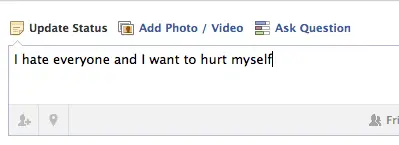As we struggle to make sense of school shootings and other acts of gun violence, Your Teen asked Amanda Nickerson, PhD, NCSP, Professor and Director of the Dr. Jean M. Alberti Center for the Prevention of Bullying Abuse and School Violence at the University at Buffalo, to answer a few questions about the protocol for reporting suspicious information.

Q: What should a parent or teen do if they see disturbing and concerning comments on social media?
Nickerson: You ask a very important question. There are a few things that one can do, depending on the severity of the incident.
First, almost all providers (cell phone carriers, social media sites like Facebook, Instagram, and Twitter) have specific abuse policies and ways to report abuses, such as threats of violence.
If you are being bullied or harassed, the providers recommend taking steps to protect yourself. You can do things like blocking communications from the other person, not responding, and reporting the abuse. For instance, on Facebook this is done by opening the message you would like to report, clicking “Actions” and choosing “Report Conversation” if the message is threatening or harassing. Violations can also be reported to Facebook on: https://www.facebook.com/help/reportlinks/. The provider will investigate reports of violent threats.
Q: When should someone involve the police?
Nickerson: If a situation has gone beyond the point of a personal conflict and has turned into a violent threat toward self or others, it is important to save the information and contact the police. If the threat is concerning but not imminent, it should be reported to a trusted individual (school, school resource officer); more schools and communities also now have anonymous tip lines to report incidents so that an investigation can take place.
If it is a potential legal issue, it is also a good idea to contact a lawyer. It is critical to report these types of violent threats to a responsible party and to follow-up. We know that many times when someone is planning to attempt suicide or hurt someone else, they let others know. It is important for those who witness this to report it to hopefully prevent a tragic situation.
Q: What if you don’t feel like your reporting was taken seriously enough?
Nickerson: Sometimes the authorities, school officials, and others cannot divulge specific information about their private investigations. You may not know what is being done. There may also be “systems factors” or criteria that need to be met in order for a report to trigger an investigation. If you or your teen has serious concerns about the safety of others and the report appears to be ignored or not taken seriously by the first person or place you contact, you should be persistent in bringing the issue to the attention of someone who will take it seriously and follow through.






